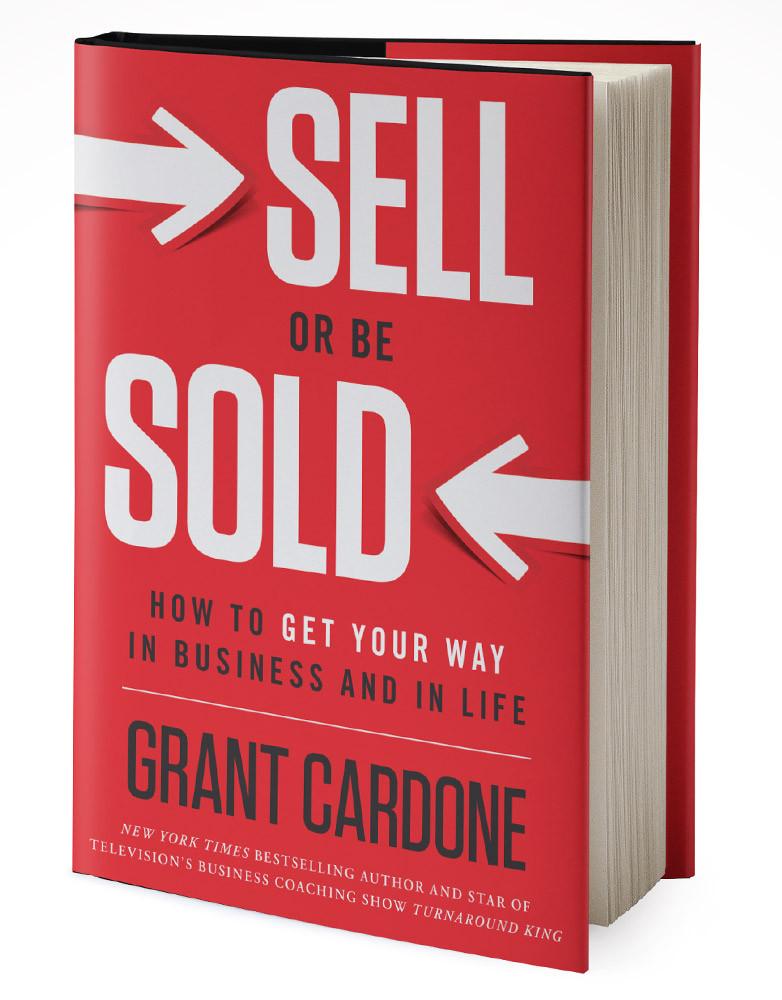“Book Notes” is a collection of notes from books relevant to entering the industry and practicing financial planning.
***
Note: For a series introduction and an explanation of my interest in the book, check out this page with my notes on the first three chapters.

***
Chapter 4: The Greats
After Cardone contrasts professionals and amateurs in Chapter 3, he uses Chapter 4 to explain the importance of commitment, why looking for “greener pastures” is a recipe for failure, how commitment can lead to predicting outcomes, an alternative explanation for why people don’t like sales (other than rejection), and what makes a truly great salesperson:
- “Commit: to devote oneself completely to something. … If you are a career salesperson, you have to devote yourself, your energy, and your resources to a career in selling.”
- “Remember, while there may be greener pastures, they’re green because someone committed … So commit to your career, commit to learning about selling, commit to your product, service, and employees. Commit to learning everything you can and watch how much green your career will produce for you.”
- “I didn’t realize it at the time, but I realize now that the ability to predict is one of the first benefits received from committing all the way. I had become responsible, aware, alert, and solution-oriented, and was able to predict [objections and outcomes]!”
- “The only reason a person doesn’t like what he’s doing is because he doesn’t know what he’s doing! He isn’t winning, and that’s because there’s something that he doesn’t know. … When you don’t understand something, you aren’t in control, and when you aren’t in control, you aren’t going to like what you are doing!”
- “The greats can predict, a skill that comes from committing, observing, and preparing solutions.”
Chapter 5: The Most Important Sale
Next up Cardone highlights the importance of a salesperson’s belief in their product, warns to be mindful of any wavering conviction, clarifies that belief in a product’s superiority shouldn’t stem from delusion, and finally emphasizes the importance of owning the product being sold.
- “You’ve got to be absolutely convinced that your product, your company, your services, or your ideas are superior to all others. … This one point is critical for greatness, and you cannot negotiate it in any way. … you should [completely believe in your product’s] superiority.”
- “Perhaps you allowed your certainty to waver, or maybe something entered your head that made you doubt yourself or your product just a tiny bit. Whatever it was, find it and throw it out like yesterday’s garbage.”
- “Should you lie to yourself? Of course not… Sell yourself on what you need to do today … to make the sale. Find every plus point and sell it.”
- “By owning the product you’re selling, you’re demonstrating your certainty to others by your actions, and actions do speak louder than words.”
Chapter 6: The Price Myth
We then move to the issue of price. Cardone explains his belief that price isn’t usually the issue behind a lost sale and the two issues that usually are. He then presents what may seem a counterintuitive suggestion to isolate whether the price is the objection factor. Finally, Cardone encourages the reader to do an exercise that demonstrates there are times when price should be more of a factor – but that human nature often overrides the decision.
- “Price is not the buyer’s biggest concern. Most sales are lost over unspoken objections – not the obvious and apparent objections like price, payments, or budgets, but the ones that the buyer doesn’t voice.”
- “Price is almost never the issue for buyers, even when they say it is. More often than not, the real issue is love and confidence. Do I love this product? Because if I do, then I’ll pay whatever it takes. Is the buyer 100 percent confident that this product will get him what he wants?
- “By moving him up rather than down in inventory [suggesting a higher-priced product or service], you’ll get him thinking in terms of value, and you’ll find out whether his [price] objection is valid or not.”
- “Consider how many times you’ve paid more than you could afford and you loved it! Consider how many times in your life you went over budget because you found something that you weren’t even looking for and decided to buy it on impulse.”
***
Again, as you might have concluded, Cardone writes with a lot of hyperbole. Still, for those without a sales background, he does present some topics that I think are worth considering.
***






